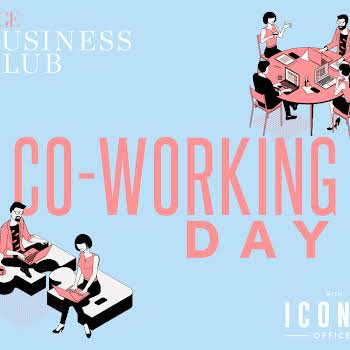
By Jennifer McShane
02nd Aug 2021
02nd Aug 2021
Work anxiety? Yes, it's a very real thing in 2021
In 2021, it’s no secret that we’re all working that little bit more, that little bit harder. The pressure to remain ‘on’ 24/7 is mounting for our modern workforce, especially as we continue to work from home. The concept of a work/life balance is becoming increasingly blurred – very few of us leave our work stresses at the desk. France even went as far as to create a law that banned its employees from checking emails outside hours to address the issue – a sure sign that more of us are feeling the strain.
First, there was work stress, and now, we’re seeing the rise of workplace panic and anxiety attacks. Research shows that 52% of us will have at least one of those in our lives and at least three-quarters of women suffer from this. It’s less prevalent on our shores but still very much exists. It’s important to note that this isn’t simply about disliking your job; this is stress signals at such a level that your body physically reacts – a warning sign linked to our ‘fight or flight’ survival instinct as humans.
However, the good news is that more and more of us are paying attention, spotting the signs and are therefore able to combat it in its early stages. But what exactly is work anxiety? And what steps can we take to cope? Career Psychologist Sinead Brady offers her advice.
Advertisement
What is the difference between common work stress and work anxiety?
“There is a very fine line between workplace stress and workplace anxiety. The boundary between both lines blurs easily and crossing over from stress to anxiety is quite common. For the most part, the distinction between the two refers to the consistency of the feeling.

“Stress is a fleeting feeling that we all get coming up to a deadline, when a big project has to be completed or when a lot of work hits your desk that you weren’t expecting. It might last for a number of hours, days or weeks but it is typically fleeting. Once the stressful event has passed you feel a sense of relief, once you get rest you feel recharged and ready to take on the next task.”
“Work anxiety is very different in the sense that it is a more permanent ongoing feeling that you have about work. You may suffer from panic attacks, lack of sleep, feelings of depression or become fearful at the thought of going to work. You are consumed by feelings of negativity relating to your work, your confidence is suffering, you are tearful more frequently than normal, and this affects other parts of your life. Your feelings extend beyond the stressful event with the symptoms affecting your performance at work but also your personal life.”
How common is work anxiety in Ireland?
“Workplace stress is hugely prevalent in Ireland nowadays. Many clients and workplaces that I support do their best to address and deal with workplace stress and anxiety. Workplace anxiety is less prevalent, but nonetheless, a significant issue affecting many people.”
“It is a lonely and isolating feeling.”
Advertisement
What steps should you take to combat it?
“The first thing to do is to acknowledge that you feel anxious. Do not hide how you feel by pretending that everything is okay – often the default position or what I refer to as the ‘swan effect’. While you look and act like you are gliding effortlessly across the water, when in fact, you are paddling furiously to simply stay afloat.”

“Then, equally important, is to talk. Talk to a member of your family, a good friend or a trusted colleague with whom you feel comfortable. You are likely to become emotional and upset but that is natural. Be safe in the knowledge that you are not alone and that workplace anxiety, or anxiety of any type, is a mental health issue that is highly treatable once acknowledged.
“If you work for a large company speak to HR. Ask about the Employee Assistance Programme (EAP’s) offered by your company. EAP’s are private and confidential counsellor supported services for people in the workplace. Typically supported by the major private health suppliers, qualified counsellors take between 3 and 5 sessions with you to support you as you deal with your workplace anxiety. It is free to you and totally confidential in that your employer is not told about your use of the service.
“If you do not want to go to HR speak to your GP and ask for a referral to a counsellor or a psychologist to help you work through this issue.
“Alternatively, community support services offer free support services and access to counsellors at a reduced rate. The key here is to get the right type of help as early as possible. This is a treatable and transitory feeling that once you get the right support will build your confidence and resilience.”
Advertisement
The best way to broach this conversation with your boss?
“This is a very personal decision in terms of going to your boss or manager for a number of reasons. Ideally, it should be easy to speak to your boss but ultimately it can provide significant challenges.
“Making the decision to speak to your boss very much depends on your relationship with your boss. For some people suffering from workplace anxiety in which your boss or manager’s actions play a role in that anxiety must be careful. If this is the case, perhaps addressing it with your boss or manager is not the best idea. Seek outside support, evaluate if you need to speak to your boss or manager and take medically certified time off if necessary. Once you have done this, evaluate if this is the type of environment that you actually want to work in if this is how it is making you feel.
“If however, you feel that your boss or manager understands where you are coming from and that you have a strong relationship be open, frank and honest. Explain that you are seeking support and that you are working on this issue. Outline how you feel and make it clear that it is not related to them. Prepare what you want to say to your boss or manager in advance, write it down if necessary, as this ensures that you say exactly what you want to say. If you need time off, then it is a good idea to ask for and get a medical certification if necessary.”
This article was originally published in February 2020























